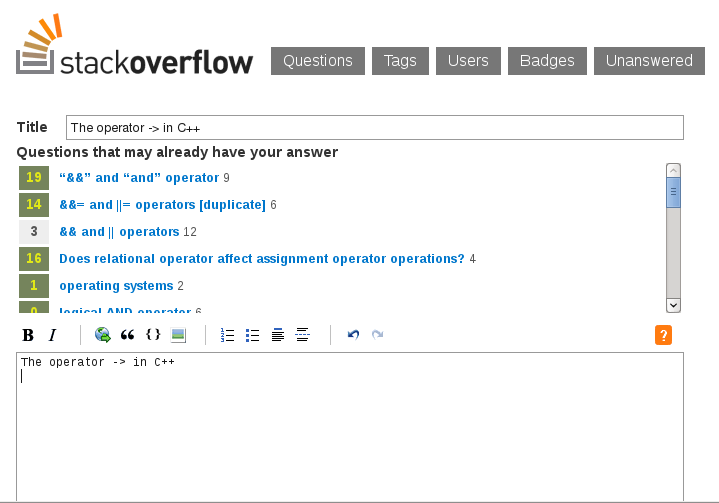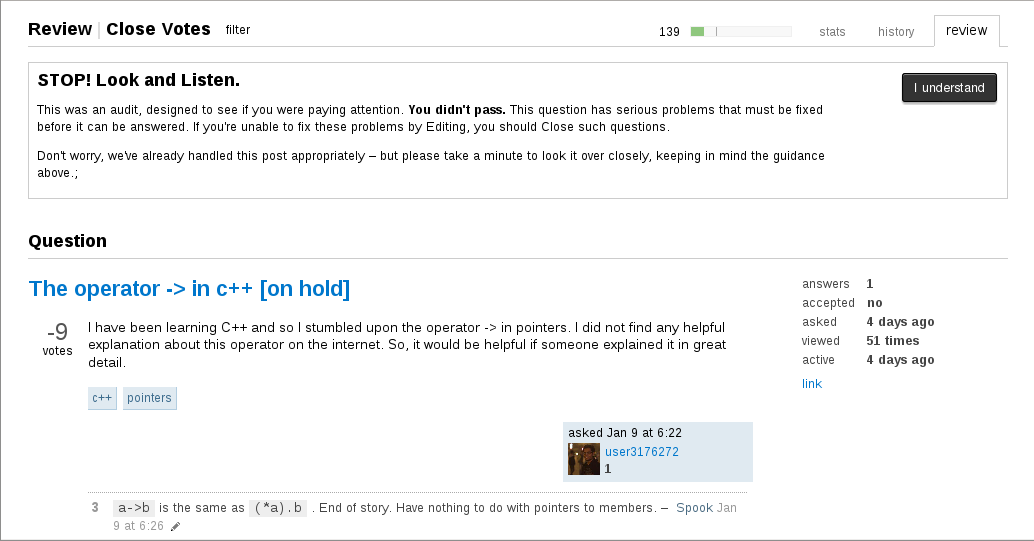I recently failed a close audit on "The operator -> in c++": https://stackoverflow.com/review/close/3800577. When the question was presented, it showed -3 votes and I thought the voting members were being a bit harsh on a new user learning C++.
In the post, the OP stated "I did not find any helpful explanation about this operator on the internet". In fact, Stack Overflow did not offer similar useful results:

Searching Google for "c++ 'operator->'" did not return a lot of results as expected (perhaps the "->" is complicating results). Also, searching for "c++ 'operator->' site:stackoverflow.com" did not return many hits either (the most popular was the a humorous post on if (x --> 0).
I performed the search myself, so I believe the OP was truthful when he stated he was having trouble finding information on it. I performed the two search because I suspected the question was a duplicate, and I wanted to point him to the correct post.
After the audit results, I see there are -9 votes and the question was closed because it was too broad.
I'd like to point out that "operator->" is the member access operator, and it does not seem to be very broad a topic to me. In fact, searching Google for "c++ member access operator" returned quality results, and many of the top results did a great job of explaining it in a couple of paragraphs.
Perhaps I'm taking something for granted here. Would someone explain to me what is too broad about the question and potential 1- or 2-paragraph answers?
Or is this a case of senior and voting members hunting in packs and this should apply: Could we please be a bit nicer to new users?.
And now I'm faced with STOP! Look and Listen shown below. I don't agree with it, so I don't want to click "I understand". I don't want to click it because I'm fairly certain its a case of the senior or voting members being jerks to a new user and hunting in packs.

EDIT: An image of Stack Overflow's suggested questions was added to show how difficult it can be to get search results when the search term includes symbols.
